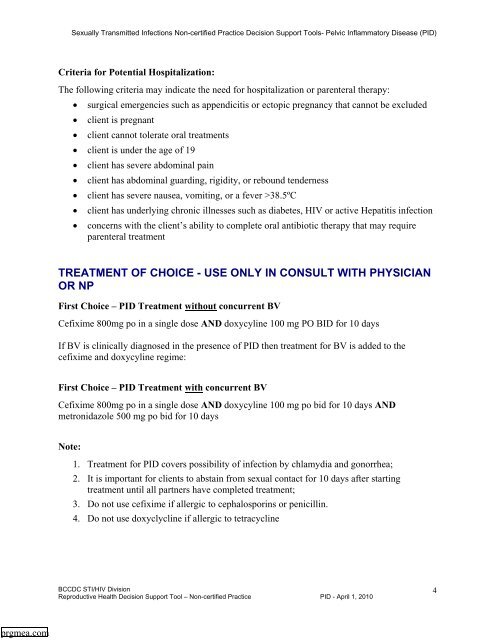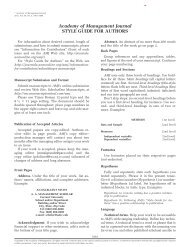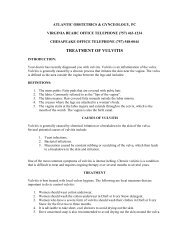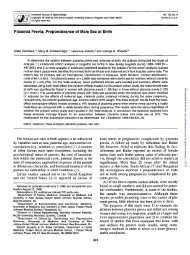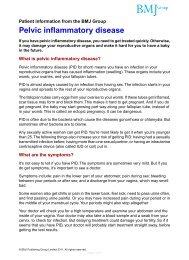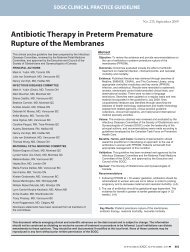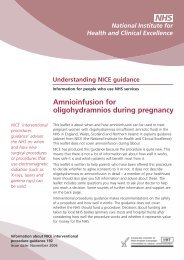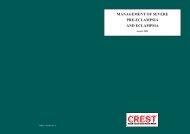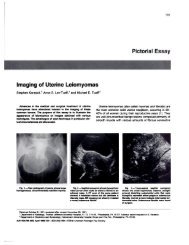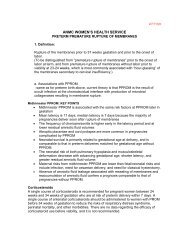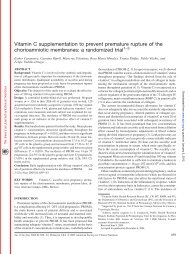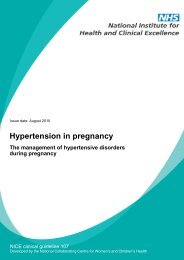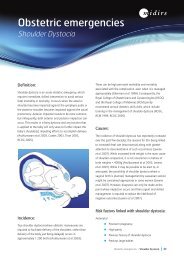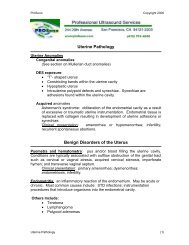PELVIC INFLAMMATORY DISEASE (PID)
PELVIC INFLAMMATORY DISEASE (PID)
PELVIC INFLAMMATORY DISEASE (PID)
Create successful ePaper yourself
Turn your PDF publications into a flip-book with our unique Google optimized e-Paper software.
Sexually Transmitted Infections Non-certified Practice Decision Support Tools- Pelvic Inflammatory Disease (<strong>PID</strong>)<br />
Criteria for Potential Hospitalization:<br />
The following criteria may indicate the need for hospitalization or parenteral therapy:<br />
<br />
<br />
<br />
surgical emergencies such as appendicitis or ectopic pregnancy that cannot be excluded<br />
client is pregnant<br />
client cannot tolerate oral treatments<br />
client is under the age of 19<br />
<br />
<br />
<br />
<br />
<br />
client has severe abdominal pain<br />
client has abdominal guarding, rigidity, or rebound tenderness<br />
client has severe nausea, vomiting, or a fever >38.5ºC<br />
client has underlying chronic illnesses such as diabetes, HIV or active Hepatitis infection<br />
concerns with the client’s ability to complete oral antibiotic therapy that may require<br />
parenteral treatment<br />
TREATMENT OF CHOICE - USE ONLY IN CONSULT WITH PHYSICIAN<br />
OR NP<br />
First Choice – <strong>PID</strong> Treatment without concurrent BV<br />
Cefixime 800mg po in a single dose AND doxycyline 100 mg PO BID for 10 days<br />
If BV is clinically diagnosed in the presence of <strong>PID</strong> then treatment for BV is added to the<br />
cefixime and doxycyline regime:<br />
First Choice – <strong>PID</strong> Treatment with concurrent BV<br />
Cefixime 800mg po in a single dose AND doxycyline 100 mg po bid for 10 days AND<br />
metronidazole 500 mg po bid for 10 days<br />
Note:<br />
1. Treatment for <strong>PID</strong> covers possibility of infection by chlamydia and gonorrhea;<br />
2. It is important for clients to abstain from sexual contact for 10 days after starting<br />
treatment until all partners have completed treatment;<br />
3. Do not use cefixime if allergic to cephalosporins or penicillin.<br />
4. Do not use doxyclycline if allergic to tetracycline<br />
BCCDC STI/HIV Division<br />
Reproductive Health Decision Support Tool – Non-certified Practice <strong>PID</strong> - April 1, 2010<br />
4<br />
prgmea.com


